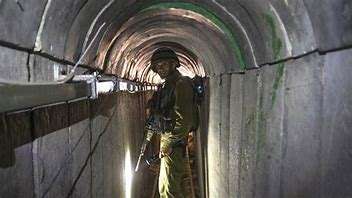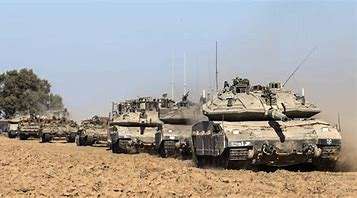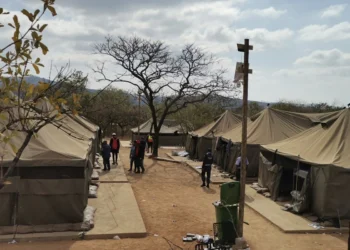Egyptian authorities on Sunday, February 11, 2024, threatened they may suspend the longstanding Camp David Accords peace treaty with Israel if Israeli forces enter the densely populated Gaza border town of Rafah.
According to two Egyptian officials and a Western diplomat, this move could jeopardize the critical aid supply route for the territory.
The situation arises as Prime Minister Benjamin Netanyahu asserts the necessity of deploying troops to Rafah to secure victory in the ongoing four-month conflict against the Palestinian militant group Hamas.
Rafah, currently hosting over half of Gaza’s 2.3 million inhabitants, has become a refuge for those fleeing violence in other regions.
The displaced population is crammed into sprawling tent camps and U.N.-run shelters near the border.
Egypt, however, expresses deep concern over the potential influx of hundreds of thousands of Palestinian refugees, many of whom may face an uncertain future with no possibility of return.
The Camp David Accords, a linchpin of regional stability for nearly fifty years, now hangs in the balance.
The impasse between Israel and Egypt, both key allies of the United States, occurs amidst warnings from aid organizations regarding the potentially exacerbating impact of an offensive in Rafah on Gaza’s already dire humanitarian situation.
Approximately 80% of Gaza’s residents have already been displaced from their homes, and the United Nations reports that a quarter of the population is facing starvation.
According to Hamas’ Al-Aqsa television station, an unnamed Hamas official has stated that any incursion into Rafah would sabotage ongoing talks facilitated by the United States, Egypt, and Qatar, aimed at achieving a ceasefire and securing the release of Israeli hostages.
Prime Minister Benjamin Netanyahu, during an interview, suggested that civilians in Rafah could relocate northward, indicating that there are areas cleared by the military for this purpose.
However, the offensive has resulted in extensive destruction, particularly in northern Gaza, with intense fighting still ongoing in central Gaza and the southern city of Khan Younis.
A ground operation in Rafah could also lead to the closure of its crossing, further impeding the delivery of urgently needed food and medical supplies.
All three officials, speaking anonymously due to the sensitivity of the negotiations, confirmed Egypt’s threats. Qatar, Saudi Arabia, and other nations have also cautioned about severe consequences if Israel enters Rafah.
“An Israeli offensive on Rafah would lead to an unspeakable humanitarian catastrophe and grave tensions with Egypt,” cautioned European Union Foreign Policy Chief Josep Borrell.
The White House, which has supplied arms to Israel and shielded it from international calls for a cease-fire, has also issued a warning against a Rafah ground operation in the current circumstances, labeling it a “disaster” for civilians.
Israel and Egypt, having engaged in five wars before signing the Camp David Accords, a significant peace treaty brokered by then-U.S. President Jimmy Carter in the late 1970s, have specific provisions in the treaty governing the deployment of forces on both sides of the border.
Mounting Palestinian Death Toll

Egypt has extensively fortified its Gaza border, creating a 5-kilometer buffer zone and installing concrete walls both above and below ground.
Despite Israeli claims of smuggling tunnels operated by Hamas beneath the border, Egypt asserts full control on its side.
However, Egyptian officials express concern that a breach in the border could lead to a situation where the military might struggle to prevent a large number of people from fleeing into the Sinai Peninsula.
According to the United Nations, Rafah, typically home to fewer than 300,000 people, currently accommodates an additional 1.4 million individuals who have fled conflict elsewhere, resulting in severe overcrowding.
Netanyahu stated that Hamas still maintains four battalions in the area, emphasizing that those who argue against entering Rafah are essentially advocating for conceding the war and allowing Hamas to remain there, according to a news agency.
As of Sunday, Gaza’s Health Ministry reported that hospitals received the bodies of 112 individuals killed in the past 24 hours, along with 173 wounded.
The latest casualties bring the death toll in the strip to 28,176 since the war’s commencement.
The ministry doesn’t differentiate between civilians and combatants but notes that the majority of those killed were women and children.
READ ALSO: Senegalese President Justifies Election Postponement In An Exclusive Interview





















